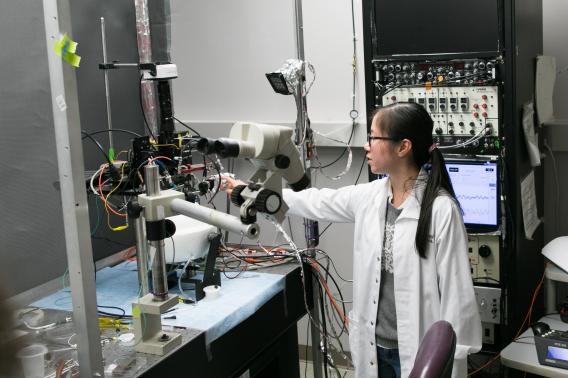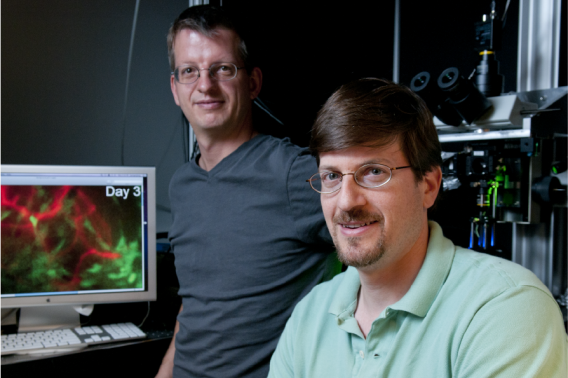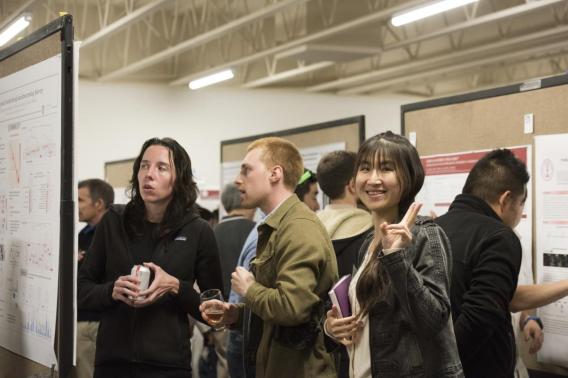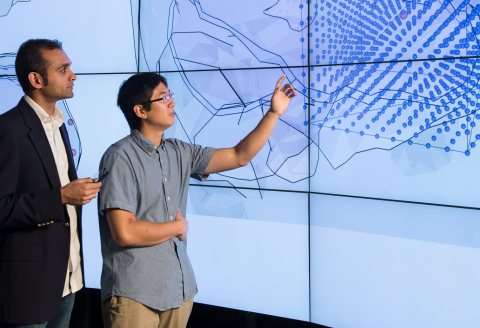The Mind, Brain, Computation and Technology student membership program is founded on the idea that contemporary research about the emergent functions of the nervous system often requires the integration of experimental investigations with computation and advanced technologies.
Membership in the center supports PhD students from empirical, computational, technical or theoretical backgrounds as they stretch beyond the traditional boundaries of their department or lab to learn complementary interdisciplinary approaches, advancing their research and helping them develop into innovators in their field.
Applications are closed.
Mind, Brain, Computation and Technology student membership is only available to students who have already begun their PhD program at Stanford. If you are not a current Stanford PhD student, please follow the normal application procedures for the PhD program of your choice, and consider joining the Wu Tsai Neurosciences Institute’s mailing list to learn more about seminars, symposia and other events.
Your student member experience

Training and research
MBCT student members are encouraged to consider which components of the program will be beneficial to their research and training goals, including elements such as additional coursework beyond the requirements of students' home departments, and other learning and research engagement opportunities relevant to their research or career goals, such as travel to workshops or conferences.

Mentors
Students are encouraged to reach out to Stanford faculty or external mentors to help guide their development beyond the traditional boundaries of their lab or department. Students interested in secondary mentorship or those who have other questions about how they might best pursue their research or educational goals are encouraged to reach out.

Other program activities
The Center for Mind, Brain, Computation and Technology hosts the MBCT Seminar Series and an annual symposium that brings distinguished speakers to campus to talk with program participants. Community engagement and participation is an important component of the center’s graduate student programs, and students play an important role in formulating, planning and coordinating these events along with program faculty.
MBCT student members benefit from the opportunity to engage with and participate actively in the large Stanford community of researchers interested in the synergistic approach to investigating the sciences of mind and brain. Students are given access to a menu of options to enhance their training as interdisciplinary scientists, including workshops, seminars, symposia and a community of scientists with a similar interest in bridging quantitative, computational, technical and experimental approaches to advance neuroscience research. In addition, student members receive funding to travel to conferences or scientific meetings so that they can expand their network, learn about new advances and approaches, and share their work.
Meet our current student members
Program Support
All MBCT student members in good standing are eligible to receive one $1,500 award to support research- and training-related travel, to be used within three years.
MBCT Seminar Series
The Mind, Brain, Computation and Technology (MBCT) Seminar Series explores ways in which computational and technical approaches are being used to advance the frontiers of neuroscience. This series is organized by student members of MBCT.
